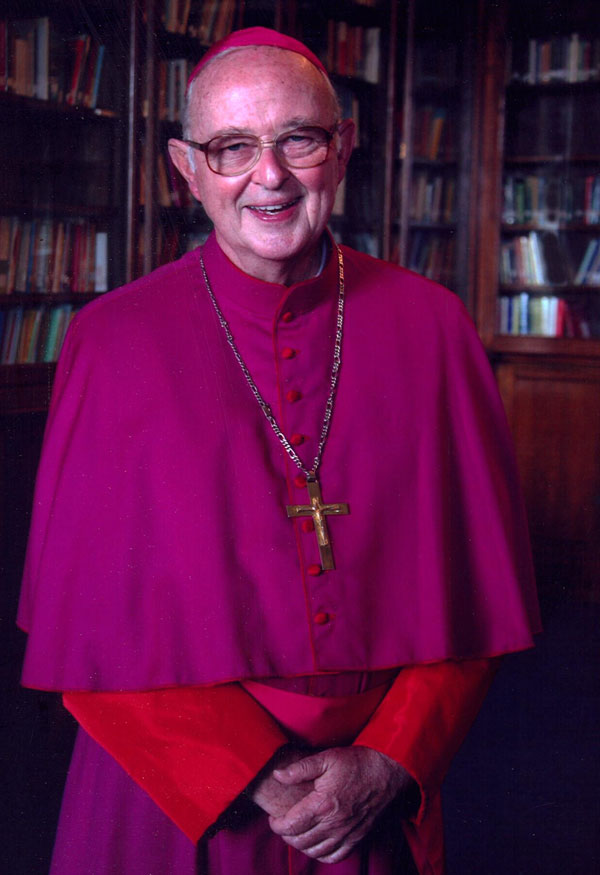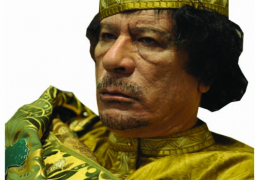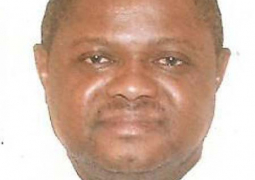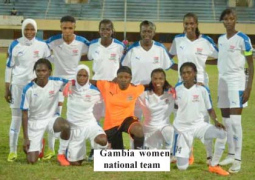
The Catholic Church in the Gambia hosted the 12th Plenary Assembly of the Association of Episcopal Conferences of Anglophone West Africa (AECAWA) in Banjul, The Gambia, from 4th to 8th August 2009. This included French-speaking West African states.
The inclusion of the French-speaking countries opened the way for both the francophones and anglophones to embrace each other's language - English and French.
It would help when subsequently, a plenary assembly takes place in a French-speaking state. Thus it is wise for those at the helm of things to study languages.
Below is a synopsis of the assembly proceedings, beginning with the history of the Catholic Church in The Gambia.
The Communiqué issued at the end of the five-day assembly stated that the Catholic Church, though present in parts of North Africa since the first century AD, had no contact with Black Africa until the 15th century when a number of popes issued Bulls promoting exploration and evangelisation. Among these was the Bull, Dum Diversas, of Pope Nicholas V issued on 18th June 1452.
In 1455, Alvisto Cadamosto, a Venetian, sailing under the orders of Prince Henry the Navigator, entered the Gambia River.
He returned in 1456 and this time established a settlement, which included a church. The place was named SAN DOMINGO. This church was, no doubt, the first in Africa south of the Sahara. The ruins are still there, near Albreda some 20 miles up the river from Banjul. There are virtually no records of the activities of the personnel in this first mission station in black Africa. It is fair to assume that malaria and yellow fever must have decimated the contingent.
There is no record either of active missionary engagements in the area over the next 200 years.
Spanish Capuchins (Franciscans) were said to have been occasional visitors to the Portuguese trading stations (Albreda, Eregia, Bintang and Tankular) in the 17th and 18th centuries. Priests from Cape Verde also visited.
In the 19th century, French Spiritan Missionaries based in St. Louis, the former capital of Senegal, started a downward push along the Atlantic Coast, reaching Banjul in 1849, and got established there. This marked Catholicism's second coming to The Gambia. Since then, there has been a gradual development, that is, in the number of Catholics, churches, schools and support facilities.
The Association of Episcopal Conference of Anglophone West Africa (AECAWA), comprising all the Catholic bishops of The Gambia, Sierra Leone, Liberia, Ghana and Nigeria deliberated on the theme "Youth Migration in West Africa", with its francophone counterpart, the CERAO.
The theme is relevant to the entire region in which youth migration has become a challenge.
"We the Bishops are aware of the various types and causal factors of migration. Some of which are positive and can meaningfully contribute to development at various levels of human existence. However, other types of migration have only led to negative consequences such as criminality, brain drain, spread of disease, estrangement from family, human trafficking, prostitution etc.
In short, migration calls for a serious concerted action by governments of West Africa, the Churches and the West African Youth themselves".
In their observations, appeals and recommendations, the bishops commended leaders of ECOWAS for creating ECOWAS on 28th May 1975 at a Lagos Treaty to serve the need for regional integration. They were, therefore, happy and termed it providential that the Regional Episcopal Conference of West Africa (RECOWA) is replacing AECAWA and CERAO. There is need, they said, for RECOWA and ECOWAS at both the government and pastoral levels to take stock of national laws that militate against migration, such as unemployment and investment codes that are at variance with ECOWAS protocol on capacity building.
"Nations should arrest the filthy corruption and bribery that goes on both at immigration and customs posts," the bishops said. They further said there was a need for RECOWA and ECOWAS to discuss migration matters for the well-being of all nationals in our region.
The bishops further spoke on the situation in individual countries, and on the need for good governance and conflict resolution.
They said when economies are in shambles migration is eminent. Economic downturn, they believe, exacerbates poverty and hunger, thus making many to migrate for greener pastures, because they must live.
The bishops said they must continue the dialogue with governments within the sub-region, to make them desist from political corruption that thwarts national, socio-economic development, as well as breeding economic chaos, poverty and unemployment.
They further decided that they should commit themselves to the training of priests to sensitive concerning immigration issues.
The Catholic bishops also spoke on unemployment and other social ills; noting that jobs should be created for youth, both in the rural and urban areas. Universities and other tertiary institutions are to be responsive to the job market, and review their curricula accordingly.
The Church is also to appreciate human mobility. It must be stressed that human mobility is not only a fundamental right, but it is an inherent desirable component of socio-economic development.
The bishops stressed on youth formation to be part of the universal community.
"We should celebrate World Youth Day as a privileged instrument for the pastoral care of youth". They agreed on "establishing a national framework of stakeholders with our Respective Advocacy Groups of National Conferences of Bishops".
The bishops expressed the need to collaborate with civil authorities to create economic and political situations that are conducive for youth well-being.
As pastors, they advised youth to obtain genuine documents when they want to travel outside their country. Before they leave, the bishops said they should educate themselves well, "and abide by the laws of the countries you lawfully travel to".
"After studies, you return home. Never should you go abroad for wrong reasons e.g. drug peddling, prostitution, joining criminal gangs to steal or money laundering".
The bishops concluded by praying for Africa, and invoking the intercession of the Blessed Virgin Mary, Queen of Africa and helper of Christians, "for God's blessings on our efforts to prepare our youth for their future responsibilities in Church and society".



